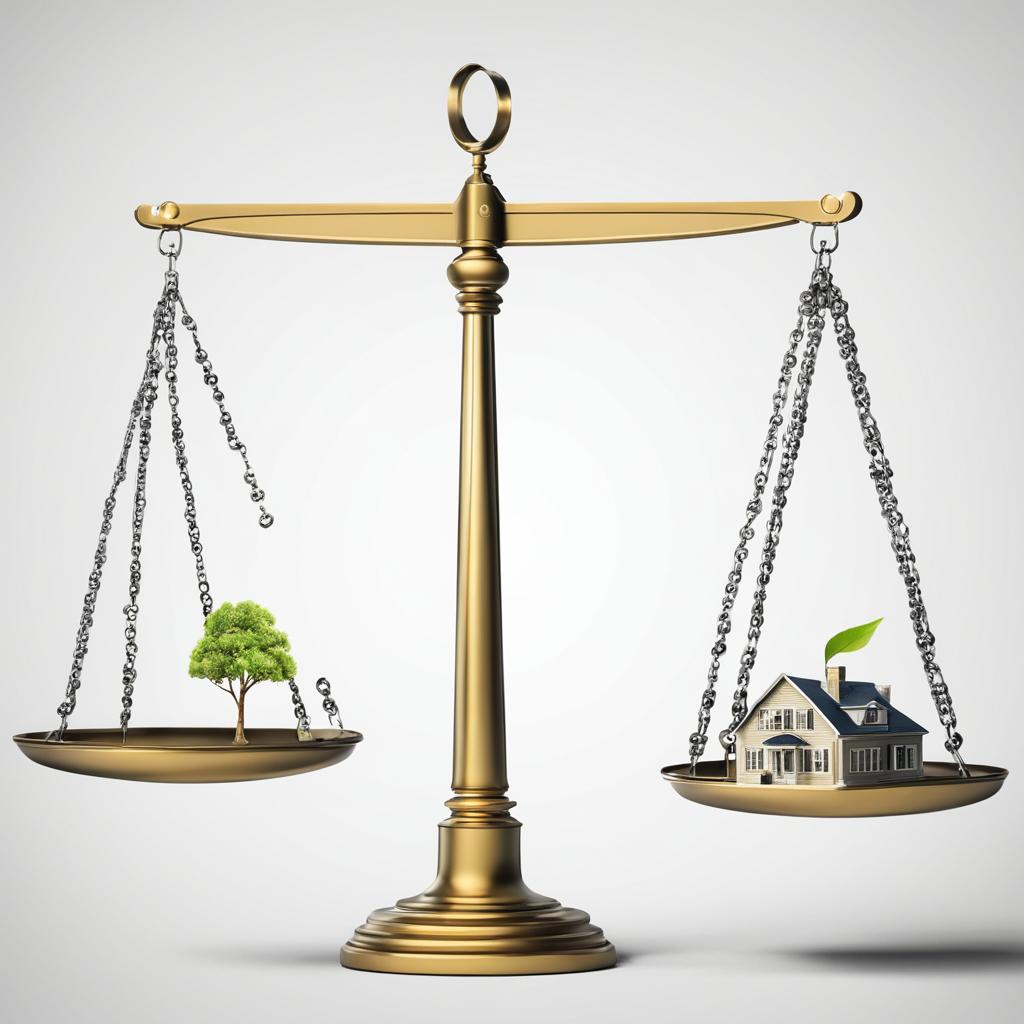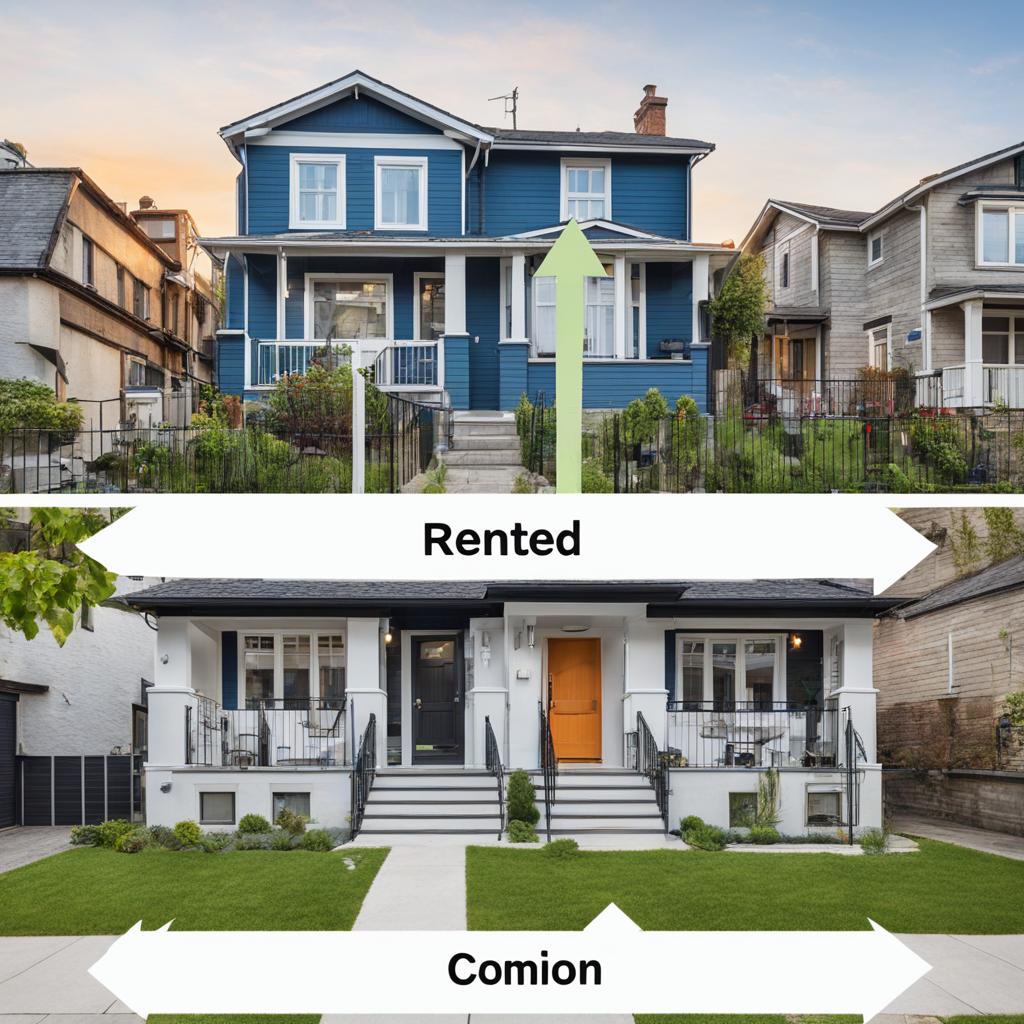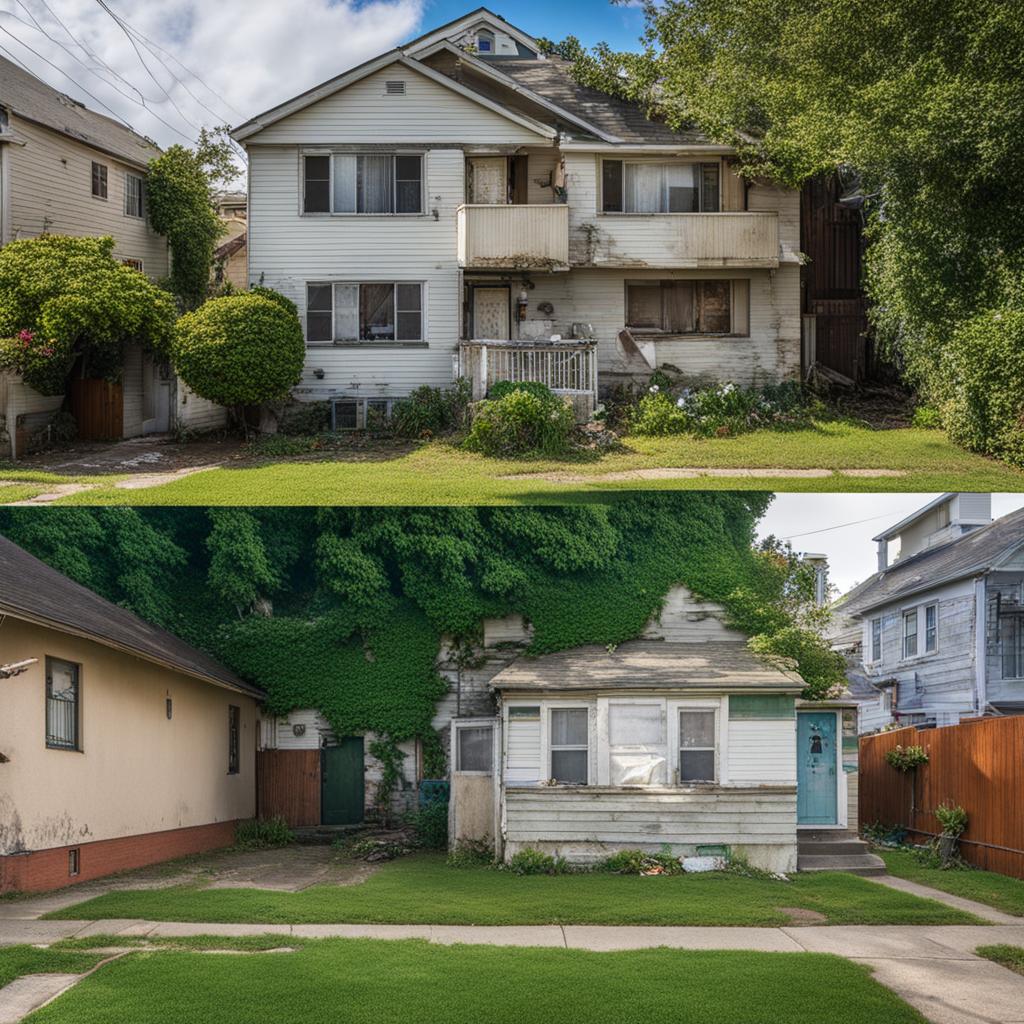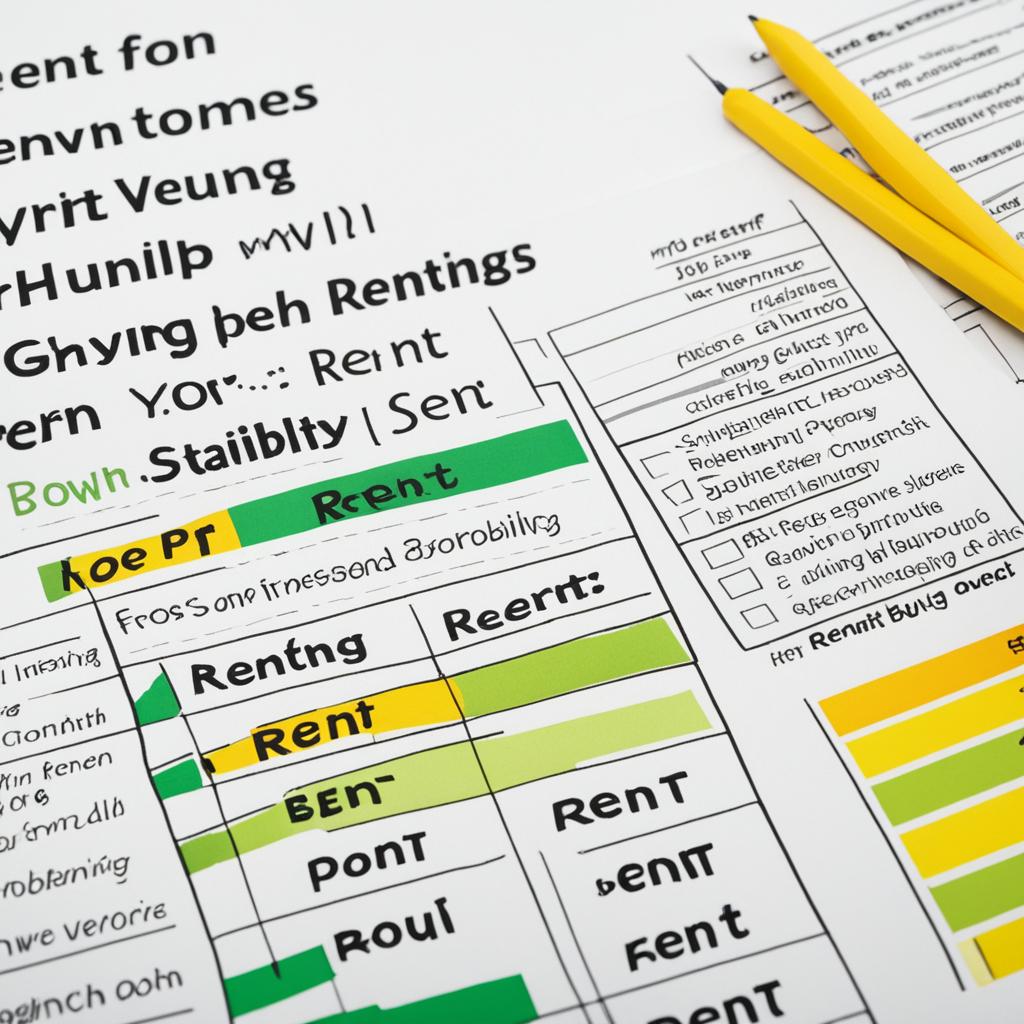Deciding whether to rent or buy a property is a decision that can have a significant impact on your financial future. Many people find themselves renting for longer than necessary, but in most cases, buying a property is the better choice, especially if you plan to live in it for at least a couple of years.
In my own experience, buying a condo turned out to be a highly profitable investment. Over a span of just 4 years, the value of my property increased by a remarkable 147%, resulting in a profit of over $350,000. This goes against conventional wisdom, which often favors renting, but the reality is that buying still offers significant advantages in many markets.
To help you make an informed decision and navigate through the complexities of the rent vs. buy dilemma, this article will delve into various factors such as market conditions, personal circumstances, financial goals, and more. Whether you’re a first-time buyer or someone looking to transition from renting to owning, understanding the pros and cons of each option is essential.
Key Takeaways:
- Buying a property can be a highly profitable investment, offering the potential for property appreciation and building equity.
- Personal circumstances, such as the duration of stay, financial stability, and lifestyle preferences, should be carefully considered when making the rent or buy decision.
- Rent vs. buy calculators and market analysis tools can provide valuable insights, but consulting with professionals, such as real estate agents or financial advisors, is recommended.
- While buying a home offers long-term stability and potential tax advantages, renting provides flexibility and freedom from certain responsibilities associated with homeownership.
- The decision ultimately depends on individual circumstances and goals, and what may be the right choice for one person may not necessarily be the same for another.
The Importance of the Rent or Buy Decision
The decision to rent or buy a house is one of the most significant financial choices you’ll make. It has the potential to impact your long-term financial stability and your ability to accumulate wealth. When deciding whether to rent or buy a home, it’s important to consider various factors, including market conditions, personal circumstances, and financial goals.
Renting versus buying a home involves weighing the advantages and disadvantages of each option. Renting offers flexibility and freedom from the responsibilities of homeownership, while buying a home allows you to build equity and potentially benefit from property value appreciation. Additionally, renting may be more affordable in certain markets or situations, whereas owning a home provides stability and the opportunity for customization.
In the words of Warren Buffet, “The best investment you can make is in yourself. The more you learn, the more you’ll earn.”
Consider Market Conditions
Before making a decision, it’s crucial to evaluate the real estate market. Market conditions can greatly influence the financial viability of renting versus buying. Researching market trends, property prices, and interest rates can help you determine whether it’s a good time to buy or if renting is a more favorable option.
Evaluate Personal Circumstances
Your personal circumstances also play a significant role in the rent or buy decision. Consider factors such as your current financial situation, future plans, and lifestyle preferences. Assess whether you have sufficient savings for a down payment and if you’re in a stable position to take on the responsibilities of homeownership.
Align with Financial Goals
Your financial goals are another important consideration. Determine whether owning a home aligns with your long-term financial objectives. Buying a house can be a way to build equity and potentially generate a return on investment, while renting can offer more flexibility and allow you to allocate funds towards other investments or savings goals.
By carefully evaluating market conditions, personal circumstances, and financial goals, you can make an informed decision about whether to rent or buy a house. Remember, there isn’t a one-size-fits-all answer, and what works for one person may not work for another.
Next, we’ll dive deeper into evaluating the real estate market and how to determine the duration of your stay. Stay tuned!
Evaluating the Real Estate Market
When deciding whether to rent or buy a property, it is essential to evaluate the real estate market carefully. Analyzing market trends and understanding the factors that can impact property values and affordability are crucial steps in making an informed decision.
One valuable tool for gaining insights into the real estate market is Trulia. Trulia provides comprehensive data and analytics that can help you understand market conditions, track property prices, and explore neighborhood amenities. By utilizing Trulia’s resources, you can gain a better understanding of the local market dynamics and make an informed choice.
Additionally, researching the growth potential of the specific market you’re interested in can greatly influence your decision. Evaluate factors such as job growth, population trends, and investment initiatives in the area. Assessing these factors can help determine whether buying or renting is a more viable option based on the potential for property appreciation and long-term value.
Benefits of Analyzing the Real Estate Market
Analyzing the real estate market offers several benefits, including:
- Market Insights: Understanding the current state of the real estate market can provide valuable insights into property values, market trends, and potential investment opportunities.
- Affordability Assessment: Evaluating the real estate market allows you to assess whether buying or renting is more affordable based on property prices, rental rates, and other associated costs.
- Future Prospects: Researching the growth potential of the market can help you determine if the area offers long-term growth opportunities. This information can be useful for both investment and lifestyle considerations.
Analyzing the real estate market is like putting on a pair of glasses that allows you to see the bigger picture. It provides you with the insights necessary to navigate the real estate landscape and make a well-informed decision.
By thoroughly evaluating the real estate market, you can gain valuable insights into the current conditions, future prospects, and affordability of buying or renting a property. Remember to utilize resources like Trulia and conduct comprehensive research to ensure you make the best decision for your individual circumstances and goals.
| Factors to Consider | How it Influences the Decision |
|---|---|
| Property Values | Determines affordability and potential returns on investment. |
| Rental Rates | Compares the cost of renting versus buying in the current market. |
| Market Trends | Identifies patterns and predicts future market conditions. |
| Growth Potential | Assesses the long-term prospects for property appreciation. |

Examining the real estate market is an essential step in the rent or buy decision-making process. The information gained from market analysis can provide valuable insights into affordability, future prospects, and investment potential. By considering factors such as property values, rental rates, market trends, and growth potential, you can make a well-informed choice that aligns with your financial goals and lifestyle preferences.
Determining the Duration of Stay
The length of your intended stay plays a significant role in your decision to rent or buy a property. While conventional wisdom suggests that homeownership is best suited for those planning to stay for at least 5 years, the financial advantages of buying can manifest in shorter periods as well.
When considering the benefits of renting vs owning, it’s important to evaluate the advantages of both options based on your specific circumstances.
Advantages of Renting
- Flexibility: Renting provides the flexibility to easily relocate if needed. You are not tied down to a specific property or location, allowing you to adapt to changing personal or professional circumstances.
- Lower Maintenance Responsibilities: As a renter, you are not responsible for major upkeep or repair costs. If a maintenance issue arises, you can simply contact your landlord or property management company for resolution.
- Potentially Lower Costs: In certain markets or situations, renting may be more affordable than buying. Rent payments do not include additional expenses like property taxes, insurance, or maintenance costs.
Advantages of Buying
- Equity Building: One of the key advantages of homeownership is the opportunity to build equity. As you make mortgage payments, you increase your ownership stake in the property, potentially building long-term wealth.
- Customization: Homeownership allows you to personalize your living space to suit your preferences. You have the freedom to renovate, decorate, and modify your home as desired.
- Potential for Appreciation: Real estate historically tends to appreciate in value over time. By buying a property, you have the potential to benefit from property appreciation, increasing your overall return on investment.
- Tax Deductions: Homeowners can take advantage of tax benefits such as deducting mortgage interest and property tax payments, potentially reducing their overall tax liability.
Ultimately, whether you choose to rent or buy depends on your individual circumstances, financial goals, and personal preferences. Evaluating the benefits and advantages of each option, considering the duration of your stay, and consulting with professionals can help guide you in making an informed decision.
| Advantages of Renting | Advantages of Buying |
|---|---|
| Flexibility | Equity Building |
| Lower Maintenance Responsibilities | Customization |
| Potentially Lower Costs | Potential for Appreciation |
| Tax Deductions |

Considering Down Payment Options
When it comes to buying a home, there is a common misconception that a 20% down payment is necessary. However, this belief is simply not true. In fact, it’s possible to purchase a property with a lower down payment, such as 5%. Waiting to save up for a larger down payment may actually have its disadvantages and result in missed opportunities for property appreciation and potential growth in equity.
By opting for a lower down payment, you can get a foot in the real estate market sooner rather than later. This is particularly advantageous in a market where home prices are rising. While it’s important to note that a lower down payment may mean higher monthly mortgage payments and potentially higher interest rates, the advantages of homeownership can outweigh these considerations in the long run.
One strategy to mitigate the disadvantages of a lower down payment is to leverage government programs designed to assist first-time homebuyers. There are various options available, such as Federal Housing Administration (FHA) loans or programs provided by the U.S. Department of Veterans Affairs (VA) for eligible individuals. These programs often offer more flexible down payment requirements, making homeownership more accessible.
“Waiting to save up for a larger down payment may result in missed opportunities for property appreciation and potential growth in equity.”
Comparison of Down Payment Options
| Down Payment | Advantages | Disadvantages |
|---|---|---|
| 20% | Lower monthly mortgage payments Less interest paid over the loan term Avoiding Private Mortgage Insurance (PMI) |
Requires substantial savings May delay entry into the market Higher upfront costs |
| 5% | Earlier entry into the market Opportunity for property appreciation Potential growth in equity |
Higher monthly mortgage payments Potential requirement of PMI Higher interest rates |
As can be seen from the table above, both options have their advantages and disadvantages. While a 20% down payment offers lower monthly mortgage payments and helps avoid PMI, it requires substantial savings and may delay entry into the market. On the other hand, a 5% down payment allows for an earlier entry into the market and potential growth in equity, but comes with higher monthly mortgage payments and potential PMI requirements.
Remember, before making any decisions, it’s important to consult with a mortgage lender or financial advisor who can provide personalized guidance based on your specific financial situation and goals.

Getting Pre-Qualified for a Mortgage
Understanding your borrowing capacity is essential when considering whether to rent or buy a car. Getting pre-qualified for a mortgage can provide valuable insights into what loan amount you can afford, allowing you to make an informed decision.
By going through the pre-qualification process, you will have a clear understanding of your financial standing and can compare different lenders’ rates and terms. This helps you identify the most favorable mortgage offers available, potentially resulting in significant savings over the loan term.
When getting pre-qualified, be prepared to provide your income, employment history, credit score, and other financial details. This information enables lenders to evaluate your financial eligibility and determine the loan amount you qualify for.

Remember, getting pre-qualified is only the first step in the mortgage process. It provides a preliminary assessment of your borrowing capacity but does not guarantee final loan approval. To proceed with the home buying process, you should also aim to get pre-approved for a mortgage. This involves a more rigorous evaluation of your financial profile by the lender.
Once you have obtained pre-qualification and pre-approval, you can confidently explore car buying options, knowing your budget and mortgage options.
Using Rent vs. Buy Calculators
When it comes to making a decision between renting and buying, it can be challenging to determine which option is financially advantageous for you. Luckily, there are rent vs. buy calculators available that can provide valuable insights into the pros and cons of both choices.
One popular rent vs. buy calculator is offered by Zillow. This tool allows you to input various financial factors such as home prices, mortgage rates, rental costs, and expected duration of stay. It then generates a comparison of the total costs involved in renting versus buying over a defined period.
The New York Times also provides a rent vs. buy calculator that takes into account factors like home appreciation, tax benefits, and potential investment returns. This calculator helps you understand how your decision may impact your long-term financial goals.
These rent vs. buy calculators consider several critical elements, including monthly costs, potential rent increases, property appreciation, and the impact on your overall financial situation. They can help you make an informed decision based on your specific circumstances and goals.
While these calculators provide valuable insights, it’s important to remember that they are just tools. They cannot replace careful analysis and consideration of your personal situation. Keep in mind factors such as your lifestyle preferences, future plans, and the stability of the real estate market in your area.
Ultimately, the decision to rent or buy should align with your financial goals and lifestyle. Rent vs. buy calculators are excellent starting points, and they can help you understand the potential financial implications of each option. However, it’s crucial to evaluate all aspects of your situation before making a final decision.
The Advantages of Buying a Home
Buying a home offers several advantages over renting. Let’s explore the benefits:
- Equity Building: When you buy a home, you have the opportunity to build equity over time. As you make mortgage payments, you gradually increase your ownership stake in the property. This can be a valuable asset in the long run, providing financial security and potential for future investments.
- Customization: As a homeowner, you have the freedom to customize your property to suit your preferences. Whether it’s renovating the kitchen, adding a backyard patio, or painting the walls, you can personalize your space and create a home that reflects your style and personality.
- Potential Home Appreciation: Over time, real estate has a tendency to appreciate in value. By buying a home, you have the potential to benefit from increasing property prices. This can result in a substantial return on your investment, offering financial security and the possibility of future wealth accumulation.
- Tax Savings: Homeownership provides certain tax advantages. One significant benefit is the ability to deduct mortgage interest on your tax return. This deduction can result in significant savings, reducing your overall tax liability and increasing your disposable income.
Overall, buying a home not only provides you with a sense of ownership and stability but also offers financial benefits and the potential for long-term growth.
“Buying a home is an investment that allows you to build equity, create your dream space, and potentially benefit from property appreciation.”
| Advantages of Buying a Home |
|---|
| Equity Building |
| Customization |
| Potential Home Appreciation |
| Tax Savings |
The Benefits of Renting a House
When it comes to making the decision between renting and owning a house, renting offers several advantages that can be beneficial in certain situations and markets. Let’s explore the benefits of renting a house.
Flexibility and Freedom
One of the significant advantages of renting is the flexibility it provides. As a renter, you have the freedom to choose the duration of your lease, allowing you to easily adapt to changing circumstances or personal preferences. Whether you plan to relocate for work, explore new neighborhoods, or simply want to try out a different living arrangement, renting gives you the flexibility to do so without being tied down to a long-term commitment.
Avoiding Maintenance Responsibilities
As a renter, you are not responsible for property repairs and maintenance. This can save you a significant amount of time, effort, and money. When an appliance breaks down or a leak occurs, you can simply contact your landlord or property management company, and they will handle the necessary repairs or replacements. This eliminates the stress and financial burden associated with unexpected repair costs.
Relocation Made Easy
Renting a house offers the convenience of easily relocating when needed. Whether you want to explore a new city or need to move for work or personal reasons, renting provides the freedom to uproot without the complications of selling a property or dealing with the lengthy process of purchasing a new home.
Affordability in Certain Markets or Situations
Renting a house may be more affordable in certain markets or situations. In areas with high property prices or volatile real estate markets, renting can be a cost-effective choice. Additionally, if you have short-term housing needs or are uncertain about your long-term plans, renting allows you to avoid the upfront costs of buying a house and the potential financial risks associated with homeownership.
By weighing these advantages and considering your personal circumstances and goals, you can make an informed decision on whether renting a house is the right choice for you.
| Advantages of Renting a House |
|---|
| Flexibility to relocate easily. |
| Freedom from property maintenance responsibilities. |
| Potential affordability in certain markets or situations. |
Factors to Consider When Choosing
When deciding whether to rent or buy, it’s essential to take into account several factors that can significantly impact your decision. These factors include:
- Personal Financial Situation: Evaluate your savings, income stability, and overall financial health. Consider your ability to make a down payment, cover mortgage payments, property taxes, insurance, and other related expenses.
- Lifestyle Preferences: Determine your lifestyle preferences and priorities. Consider factors such as flexibility, maintenance responsibilities, and the desire for stability that comes with homeownership.
- Market Conditions: Analyze the current real estate market. Research property prices, interest rates, and trends in the area where you intend to buy or rent. Understanding market conditions can help you assess the potential long-term financial implications.
- Future Plans: Consider your plans for the future. Evaluate the duration of your intended stay in a particular location and the potential for property appreciation. This assessment will help you determine if buying or renting aligns better with your goals.
By carefully considering these factors, you can make a well-informed decision that aligns with your financial situation, lifestyle preferences, and long-term goals.
Stability and Costs of Homeownership
Owning a home requires stability in both finances and life situations. When considering whether to rent or buy a home, it’s crucial to evaluate the potential costs involved in homeownership. These costs include:
- Property Taxes: Homeowners are responsible for property taxes, which vary depending on the location and assessed value of the property. These taxes can significantly impact your monthly expenses.
- Insurance: Homeowners insurance is a necessity to protect your investment from unexpected events like fires, theft, or natural disasters. Insurance premiums can vary based on factors such as the location, coverage, and value of the property.
- Maintenance Expenses: Unlike renting, homeowners are responsible for the upkeep and maintenance of their property. This includes regular maintenance tasks like lawn care, repairs, and renovations, which can add up over time.
- Unpredictable Repairs: Homeownership comes with the risk of unexpected repairs, such as a leaky roof or a malfunctioning HVAC system. These repairs can be costly and may require immediate attention.
“Owning a home requires stability in both finances and life situations.”
In addition to these costs, it’s essential to consider the unpredictable nature of the real estate market. The potential for property appreciation can be uncertain, and market conditions can affect the profitability of selling a property.
“The potential costs of homeownership, including property taxes, insurance, maintenance expenses, and unpredictable repairs, should be carefully evaluated when deciding whether to rent or buy a home.”
Before making a decision, it’s essential to carefully assess your financial situation, long-term stability, and willingness to take on the responsibilities and costs associated with homeownership.
Making the Decision
When it comes to the decision of whether to rent or buy, there are several factors to consider. While the financial analysis provided by calculators and market trends is valuable, it’s essential to also weigh the intangible benefits of homeownership and the flexibility offered by renting. Ultimately, the decision depends on individual circumstances and goals.
As someone who has experienced the benefits of both renting and owning, I understand the importance of making an informed decision. Throughout my journey, I’ve realized that there are advantages and disadvantages to both options. Here are some key factors to consider:
- Financial Stability: Evaluate your current financial situation and stability. Consider your savings, income, and ability to handle unexpected expenses. Owning a home requires financial stability, as it comes with expenses such as property taxes, insurance, and maintenance costs.
- Lifestyle Preferences: Determine your lifestyle preferences and long-term goals. Do you value the freedom to move frequently or do you prefer the stability that comes with homeownership? Consider how renting or owning aligns with your lifestyle choices.
- Market Conditions: Assess the current real estate market to understand if it favors renting or buying. Look at factors such as property prices, interest rates, and the potential for property appreciation.
- Future Plans: Consider your future plans, including the duration of your stay in a particular location. If you anticipate frequent relocations or prefer the flexibility to move, renting may be a better option. However, if you plan to settle down in one place for an extended period, owning a home could provide stability and potential equity growth.
It’s essential to gather as much information as possible to make an informed decision. Consult with professionals, such as real estate agents or financial advisors, who can provide expert guidance and advice tailored to your specific situation.
“The decision to rent or buy is not solely a financial one. It’s a choice that impacts various aspects of your life, and it’s important to consider both the tangible and intangible benefits before making a decision.”
Remember, there is no one-size-fits-all answer when it comes to the rent or buy decision. It’s a personal choice that depends on your unique circumstances and goals. By carefully evaluating all factors, considering professional advice, and weighing the benefits and drawbacks of each option, you can make an informed decision that aligns with your financial and lifestyle aspirations.
| Benefits of Renting | Benefits of Owning |
|---|---|
| Flexibility to easily move | Build equity over time |
| Avoid responsibility for property maintenance | Customize and personalize your home |
| More affordable in certain markets | Financial stability and potential appreciation |
| No risk of property value depreciation | Potential tax benefits |
Conclusion
The rent or buy decision is a crucial one that can have significant financial implications. Based on my personal experience and thorough research, I believe that buying a property can be a profitable choice. However, it’s essential to carefully evaluate your individual circumstances, market conditions, and future plans before making a decision.
To assist in your decision-making process, I recommend utilizing tools such as rent vs. buy calculators. These calculators consider various factors, including home prices, monthly costs, and potential returns on investment. Additionally, analyzing market trends and consulting with professionals such as real estate agents or financial advisors can provide valuable guidance.
It’s important to keep in mind that the best choice for one person may not be the same for another. Each individual’s financial situation, lifestyle preferences, and long-term goals should be taken into consideration. Ultimately, making an informed decision requires a careful evaluation of all relevant factors.
FAQ
Is it better to rent or buy a house?
The decision to rent or buy depends on various factors, including market conditions, personal circumstances, and financial goals. It is generally more financially advantageous to buy a property if you plan to live in it for at least 2 years.
What should I consider when deciding to rent or buy?
Factors to consider include the real estate market, your intended duration of stay, down payment options, borrowing capacity, and the pros and cons of renting versus buying.
How can I evaluate the real estate market before making a decision?
Researching market trends and growth potential can provide insights into the affordability and potential returns on investment. Websites like Trulia offer tools to analyze market conditions.
How long should I plan to stay in a property before buying?
Conventional wisdom suggests owning a home is recommended if you plan to stay for at least 5 years. However, in certain markets, it may be financially advantageous to buy even if you intend to stay for 2 or more years.
Is a 20% down payment necessary to buy a home?
No, a 20% down payment is not necessary. It is possible to purchase a property with a lower down payment, such as 5%. Waiting to save up for a larger down payment may result in missed opportunities for property appreciation.
How can I determine my borrowing capacity?
Getting pre-qualified for a mortgage allows you to assess what loan amount you can afford and compare different lenders’ rates and terms. Shopping around for the best mortgage offers can result in significant savings.
Are there any tools to assess the financial implications of renting versus buying?
Rent vs. buy calculators, such as those provided by Zillow and The New York Times, can help analyze factors such as home prices, monthly costs, rent increases, and potential returns on investment.
What are the advantages of buying a home?
Buying a home allows you to build equity, customize the property, potentially benefit from home appreciation, and deduct mortgage interest for tax savings.
What are the benefits of renting a house?
Renting provides flexibility, freedom from maintenance responsibilities, and the ability to easily relocate. It may also be more affordable in certain markets or situations.
What factors should I consider when choosing whether to rent or buy?
Personal financial situation, lifestyle preferences, market conditions, and future plans (such as the duration of stay and potential property appreciation) should all be considered when making the decision.
What stability and costs come with homeownership?
Owning a home requires financial stability and includes costs such as property taxes, insurance, maintenance expenses, and unpredictable repairs. The real estate market can also impact the potential for selling the property at a profit.
How can I make an informed decision on whether to rent or buy?
It is crucial to evaluate individual circumstances, market conditions, and future plans. Tools like rent vs. buy calculators, market research, and consulting with professionals (such as real estate agents or financial advisors) can provide guidance.
Is renting or buying a better choice?
The better choice between renting and buying depends on individual circumstances and goals. While buying can offer long-term financial benefits, renting provides flexibility and freedom from certain responsibilities. It is recommended to carefully consider all factors before making a decision.
Our Friends
- https://millennialmoney.com/better-rent-or-buy/
- https://www.amwestfunding.com/Rent-or-Buy-Calculator
- https://www.realtor.com/mortgage/tools/rent-or-buy-calculator/
Money posts:
 What is a Cash-Out Refinance? (2024)
What is a Cash-Out Refinance? (2024)
 Streitwise Review – Is It The Best Commercial Real Estate Investment Platform in 2024?
Streitwise Review – Is It The Best Commercial Real Estate Investment Platform in 2024?
 What’s the Difference Between Financial Freedom and Financial Independence in 2024?
What’s the Difference Between Financial Freedom and Financial Independence in 2024?
 What is Passive Income & Why It’s So Important in 2024
What is Passive Income & Why It’s So Important in 2024
 What Are the Different Types of Financial Advisors? (2024)
What Are the Different Types of Financial Advisors? (2024)
 Turo Review | Make Money Renting Out Your Car (2024)
Turo Review | Make Money Renting Out Your Car (2024)
 Net Worth By Age Stats (+10 Ways to Improve Your Worth!) (2024)
Net Worth By Age Stats (+10 Ways to Improve Your Worth!) (2024)
 Types of Life Insurance Policies Explained (2024)
Types of Life Insurance Policies Explained (2024)

